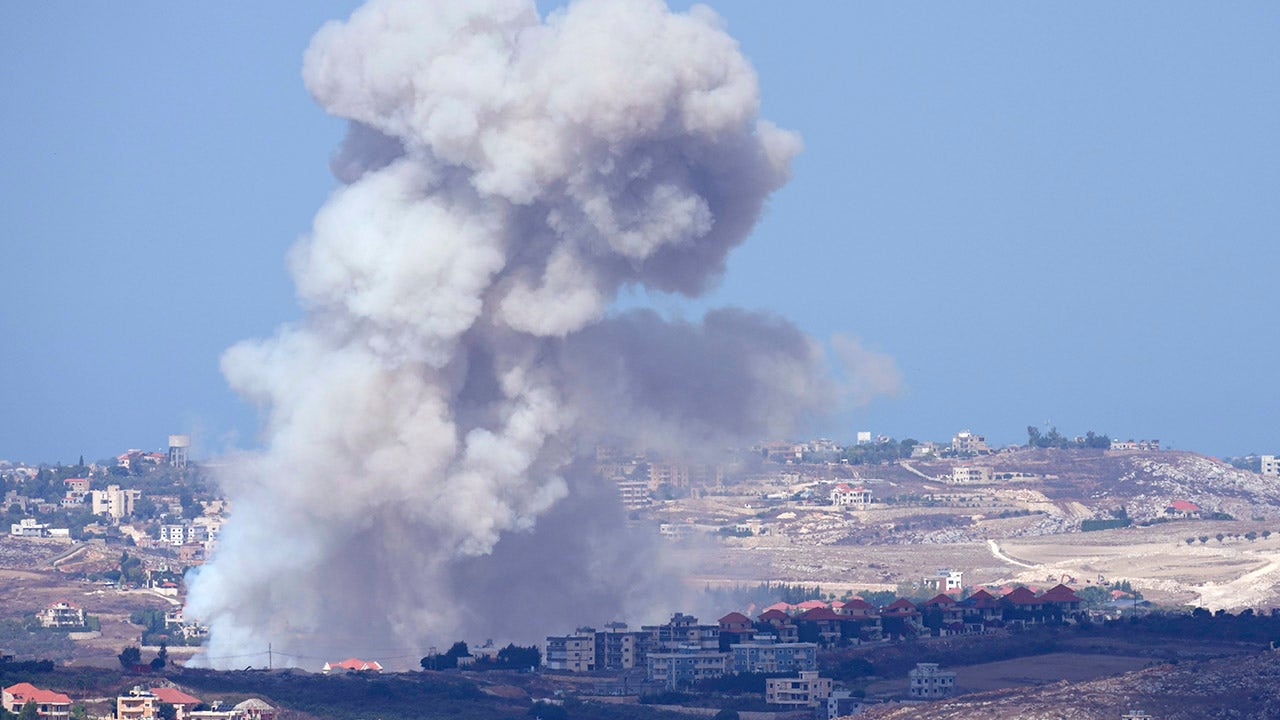Israeli Intel: How Lebanon Is Weakening Hezbollah In The South

Table of Contents
Economic Strain and Public Discontent
The crippling economic crisis in Lebanon is a major catalyst in eroding Hezbollah's popular support. The devastating consequences of this crisis are directly impacting Hezbollah's traditional power base in the south.
The Crumbling Lebanese Economy
Lebanon's economy is in freefall, characterized by:
- Hyperinflation: The Lebanese pound has lost most of its value, leading to skyrocketing prices for essential goods.
- Unemployment rates: Soaring unemployment leaves a significant portion of the population struggling to make ends meet.
- Lack of essential services: Basic services like electricity and healthcare are severely compromised, exacerbating public hardship.
- Food shortages: Food insecurity is widespread, with many families unable to afford adequate nutrition.
This economic hardship fuels resentment towards Hezbollah, whose involvement in the government is seen by many as a contributing factor to the crisis. The perceived failure to alleviate the suffering of the Lebanese people is directly impacting public opinion and weakening Hezbollah's influence.
Erosion of Public Trust
Hezbollah's perceived failure to address the economic crisis is leading to a significant erosion of public trust. Accusations of corruption and mismanagement, coupled with a lack of tangible improvements for the Lebanese people, are fueling anti-Hezbollah sentiment.
- Hezbollah's involvement in the government: Many Lebanese blame Hezbollah's political involvement for hindering economic reforms and exacerbating the crisis.
- Accusations of corruption: Allegations of corruption within Hezbollah's ranks further damage its credibility and popular support.
- Lack of tangible improvements: The absence of visible improvements in the lives of ordinary Lebanese citizens strengthens the perception of Hezbollah's incompetence.
Lebanese media outlets and independent analysts increasingly highlight this declining trust, pointing to a growing disconnect between Hezbollah and the population it claims to represent.
Increased Internal Opposition to Hezbollah
The weakening of Hezbollah is not solely driven by economic hardship; it's also fueled by growing internal opposition. This opposition manifests both within the Shia community and across Lebanon's diverse sectarian landscape.
Growing Shia Dissatisfaction
Even within its traditional Shia power base, Hezbollah faces increasing dissatisfaction.
- Competition from other Shia groups: Emergence of alternative Shia political movements challenges Hezbollah's dominance.
- Accusations of authoritarianism: Hezbollah's authoritarian tactics and suppression of dissent alienate segments of the Shia population.
- Resentment over Hezbollah's priorities: The focus on regional conflicts and military build-up, at the expense of addressing domestic issues, fuels resentment.
Protests and dissent within the Shia community, while often suppressed, indicate a growing willingness to challenge Hezbollah's authority.
Cross-Sectarian Antipathy
Opposition to Hezbollah extends beyond the Shia community. Its involvement in regional conflicts, perceived obstruction of political reform, and control over key state institutions have generated widespread antipathy.
- Hezbollah's involvement in regional conflicts: Lebanon's involvement in regional conflicts, largely due to Hezbollah's actions, negatively impacts the country's stability and image.
- Perceived obstruction of political reform: Hezbollah's influence is seen as obstructing much-needed political and economic reforms.
- Control over key state institutions: Hezbollah's control over vital state institutions fuels accusations of monopolizing power.
These factors have galvanized cross-sectarian opposition to Hezbollah, further weakening its influence and eroding its legitimacy.
The Role of Israeli Intelligence
Israeli intelligence agencies are meticulously monitoring these developments, gathering intelligence and assessing their strategic implications. While the exact methods remain classified, it's clear that Israeli Intel plays a crucial role in understanding the shifting dynamics in Southern Lebanon.
- Intelligence gathering methods: Israel utilizes a range of intelligence gathering methods, including human intelligence, signals intelligence, and open-source intelligence.
- Assessment of the situation: Israeli intelligence analysts carefully assess the extent of Hezbollah's weakening and its potential ramifications.
- Potential strategic implications for Israel: The weakening of Hezbollah presents both opportunities and challenges for Israel's security.
It's important to note that this analysis focuses on factual reporting and avoids speculation.
Conclusion
The economic crisis in Lebanon, coupled with growing internal opposition, is significantly weakening Hezbollah's power base in Southern Lebanon. Israeli Intel is actively monitoring and assessing this evolving situation, understanding the implications for regional stability. The cracks appearing within Hezbollah's support structure are undeniable, presenting a complex and evolving geopolitical landscape. Stay informed about the ongoing developments in Southern Lebanon and the implications for regional security. Further reading on "Israeli Intel" and the "weakening of Hezbollah" in Southern Lebanon will provide deeper insights. Share your thoughts and perspectives on this crucial subject – your insights are valuable to understanding the changing dynamics in this volatile region.

Featured Posts
-
 Sparks Mad A Critical Analysis Of The New Album
May 30, 2025
Sparks Mad A Critical Analysis Of The New Album
May 30, 2025 -
 Grab Your Tickets James Arthurs Manchester Concert And Uk Tour 2026
May 30, 2025
Grab Your Tickets James Arthurs Manchester Concert And Uk Tour 2026
May 30, 2025 -
 Primera Effective Natural Bladder Control For Women
May 30, 2025
Primera Effective Natural Bladder Control For Women
May 30, 2025 -
 Englands Summer Heatwave 311 Fatalities Underscore Vulnerability And Preparedness Gaps
May 30, 2025
Englands Summer Heatwave 311 Fatalities Underscore Vulnerability And Preparedness Gaps
May 30, 2025 -
 Years After Embryo Dispute Did Elon Musk Father Amber Heards Twins
May 30, 2025
Years After Embryo Dispute Did Elon Musk Father Amber Heards Twins
May 30, 2025
